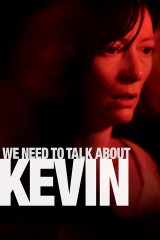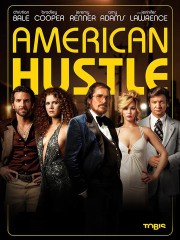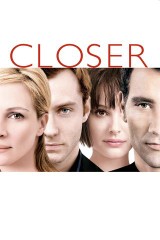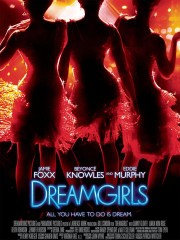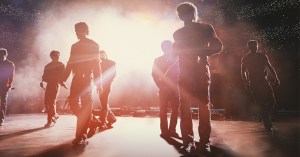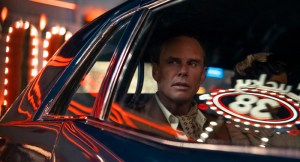Kelvin Harrison Jr.’s Five Favorite Films
The star of Luce, Waves, and the new Netflix drama, Monster, gets personal as he reveals his love for a set of deeply complicated characters and the performances that brought them to life.

(Photo by Gareth Cattermole/Getty Images)
“You’re young, you’re Black, and you’re on trial. What else do they need to know?” The line, spoken by a defense attorney to her client, Steve Harmon (Kelvin Harrison Jr.), sums up the tension at the heart of Anthony Mandler’s Monster. On trial for allegedly having served as lookout during a bodega robbery that turned deadly, Harmon finds himself face to face with the ugly reality so many young Black boys before him live with every day. Dubbed a “monster” by the prosecution, he’s called to prove not just his innocence but his humanity – to the jury, to the judge, and, yes, even to his lawyer.
An adaptation of Walter Dean Myers’s critically acclaimed YA novel by the same name, the film first premiered back in 2018 at the Sundance Film Festival. Had it come out shortly after its festival premiere, the gripping legal drama would have marked the arrival of a major talent. Harrison Jr.’s first foray into leading man territory is electrifying. The young actor captures Steve’s despair with aplomb as the cinephile teen watches his carefree life slip away when he’s entangled in a Rashomon-like trial where his version of the truth may not pass muster. As it turned out, audiences first got to see Harrison Jr. shine in films like Luce, Waves, and, most recently, The Trial of the Chicago 7, where he played Fred Hampton. Less an introduction, then, Monster nevertheless further establishes the New Orleans-born actor as one of the most exciting actors of his generation.
Ahead of the movie’s release on Netflix this May, Harrison Jr. spoke with Rotten Tomatoes about his Five Favorite Films. Despite coming up with them on the spot, his collection of women-led stories feel like a cohesive canon that reveals what thrills the young actor the most, namely the chance to watch performers at the top of their game expertly bringing to life complicated characters caught between who they are and who they wished they could be.
Manuel Betancourt for Rotten Tomatoes: Hearing you talk about all these movies, it strikes me that you are very fascinated with characters who are straddling the line between what they want to tell other people and the stories they’re telling themselves. That feels like what’s going on with Steve in Monster. Is that what drew you to the part?
Kelvin Harrison Jr.: Yeah, I think, it’s the search for identity. I think that’s the thing about those characters. They’re in a moment where they’re trying to really figure out what they want and, I mean, that’s every movie, that’s everyone in everything — we’re always trying to figure out what we want, what we need, and how do we get it. [Steve]’s 17 and his particular circumstances are: he’s privileged, he’s Black, and he’s curious. And now suddenly everyone’s sitting there trying to tell him who he is, what he can do, and that, because he’s Black, he suddenly is grouped in with a bunch of other guys. And now he’s on trial and it doesn’t really make sense to him. He’s just like, “Dude!” I’m just trying to figure out, like, what sneakers look like. I’m trying to figure out where he got jewelry from, or if he likes that girl, just stupid s–t. And it’s very simple. It isn’t that deep. And now he’s supposed to be really serious and tough to try to convince people of his humanity. He’s not innocent until proven guilty, he’s guilty until proven innocent. And he has to determine that based on somebody else’s standard of humanity.
And that’s such a wild bag to fit in. I also found that when I first started working. I was sitting there (and I even find myself in this trap now) with people telling me who I am and why I need to be a certain way and what people will accept and what people won’t accept and what people will think is, you know, too crazy: You need to do this part or you can’t do this and you can’t dress this way, you can’t say that, you know? I’m just kind of like, “What? I’m 26. Let me decide that.” I think that was the case when I first got the job. I was exploring that then, and I’m still exploring it now. I think we do that for the rest of our lives.

(Photo by Netflix © 2021)
RT: A film like Monster feels like it’s part of a constellation of projects, alongside Luce, Waves, and Monsters and Men. What are the things you’re looking for in these parts and in the projects?
Harrison: I think it’s something that the films are drawn to me and I’m drawn to them because of the path that I had gone on. One kind of serves the other, in a way. I don’t know if I want to say it’s a typecast thing because I don’t really think it’s like that, to be honest. It’s kind of more like chapters. I’ve always seen my career like that. When I first started, my first job when I got my SAG card was on 12 Years a Slave. And then after that, Roots came. And then, after that, Underground came, and then after that, Birth of a Nation came in. That’s the “Understanding My History” chapter. And then I feel like I got into like this “Black Lives Matter” chapter: Monster happened and then Monsters and Men happened. And then Luce happened, and Waves happened. And I think all of those talk about young Black men dealing with the trauma from slavery. The origins of their trauma started then.
And it’s interesting because now, with Godfather of Harlem and BB King [in Baz Luhrmann’s untitled Elvis project], I’ve been dealing with the ’60s now, the Civil Rights era. And, I think, you know, it’s unpacking what blackness means for me and for everyone in this moment as we really start to pull back the curtain and go, let’s take a look at the systems. Let’s take a look at that because we’re not standing for it anymore.
So I guess the movies have been an examination, finding the nuance that these directors and writers and performers are all trying to unpack based on the knowledge they’ve attained over their time on Earth. And if that’s what I end up doing for the rest of my career, that’s cool. That stuff means something to me, you know? It means something from me.
Monster is available on Netflix from May 7, 2021.
On an Apple device? Follow Rotten Tomatoes on Apple News.
Thumbnail image: Gareth Cattermole/Getty Images, Francois Duhamel/©Columbia Pictures, ©DreamWorks, ©Columbia, ©Sony Pictures Classics, ©Oscilloscope Pictures

